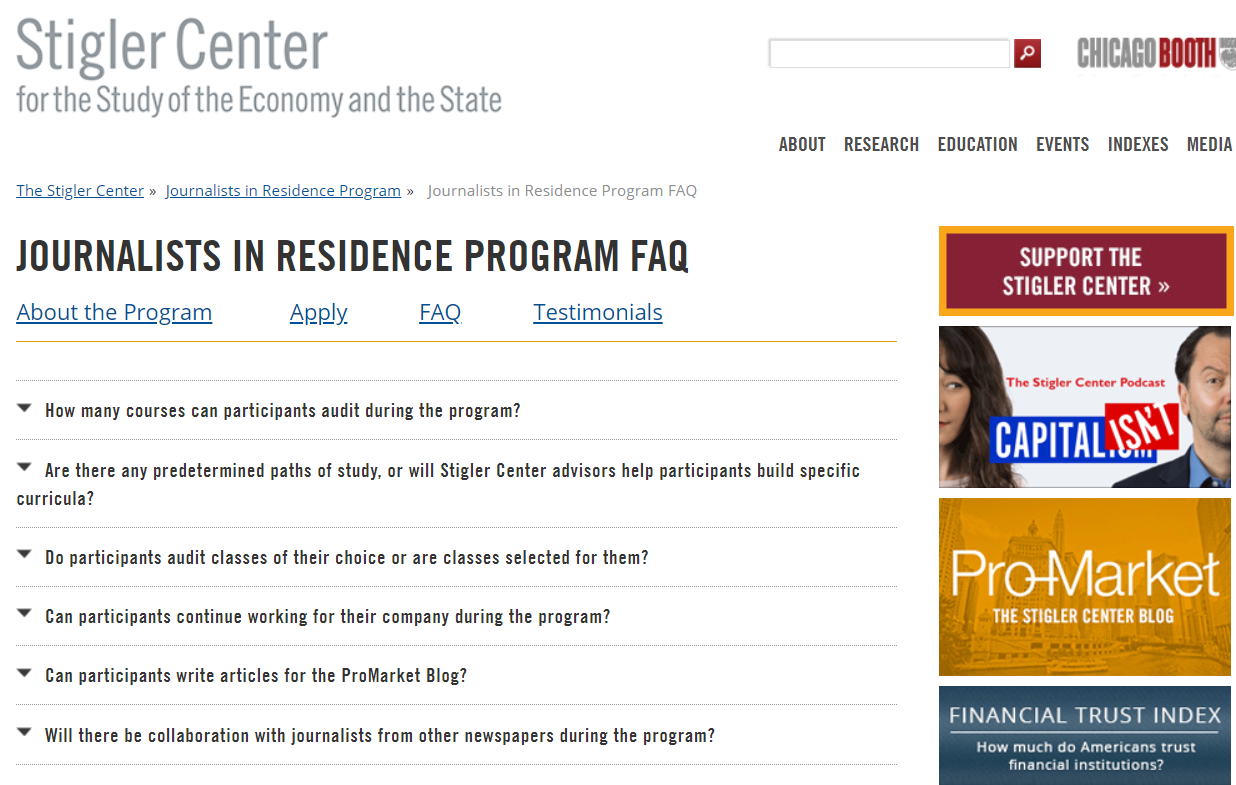As the University of Chicago moves all of its spring classes online as a precautionary measure while the COVID-19 situation is evolving, the Stigler Center decided to postpone its flagship initiative.

The COVID-19 situation is continuing to evolve across the US. The Stigler Center has so far followed the lead of the University of Chicago, which has restricted travel and enacted self-quarantine for CDC Level 3 health notice countries (currently: China, Italy, Iran, and South Korea), suspended events of more than 100 people, and postponed all nonessential international and domestic University travel through mid-April.
The University has also announced plans for virtual classes for the spring quarter.
In light of this, the Stigler Center has decided to postpone its Journalists in Residence Program to spring 2021.
The limitations posed by virtual classes, restricted events, and seminars, and (perhaps) even limited citywide mobility would greatly hinder the quality and purpose of the program, which is very much tied to the connections and in-person experiences made in class, with colleagues, and with faculty and students.
The tentative dates for the spring 2021 program would be March 22–June 12, 2021.
We realize that many program participants have spent months planning for the opportunity to be here in Chicago, so we are all very disappointed.
The decision was not made lightly and was done so in conjunction with our Faculty Director, Professor Luigi Zingales. Unfortunately, the situation has been unprecedented, and we are trying to remain ahead of it.
The Stigler Center team






